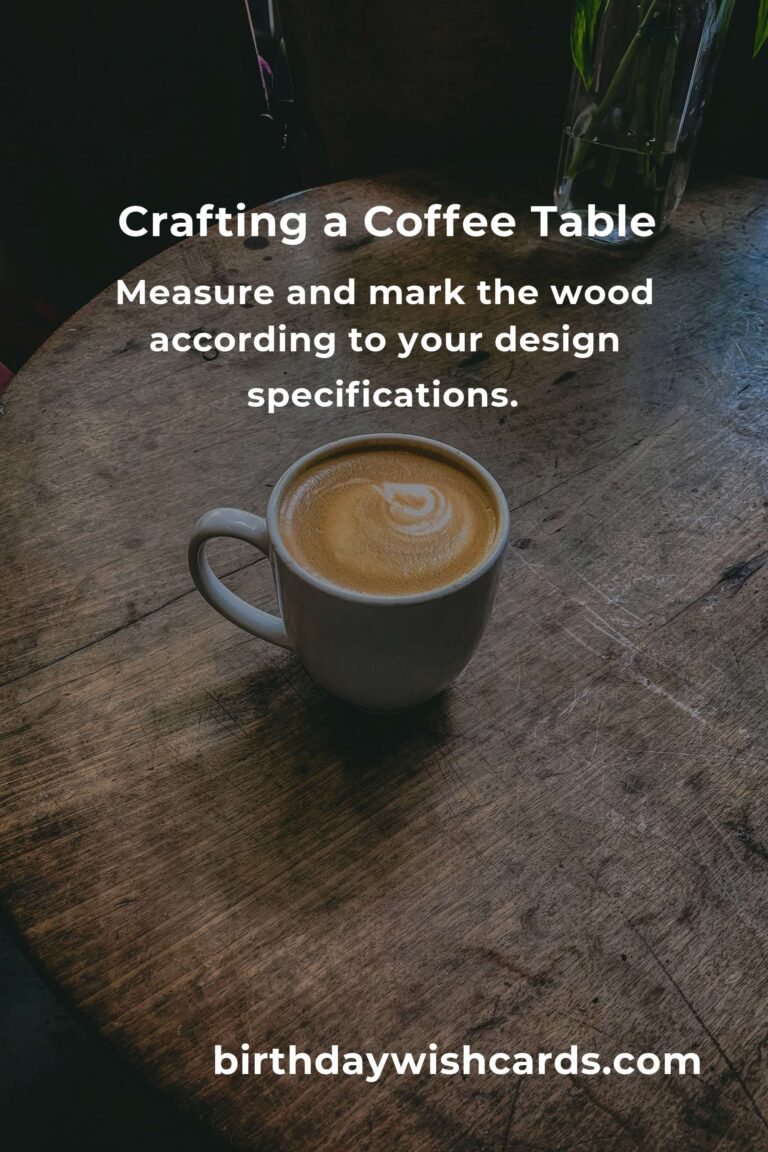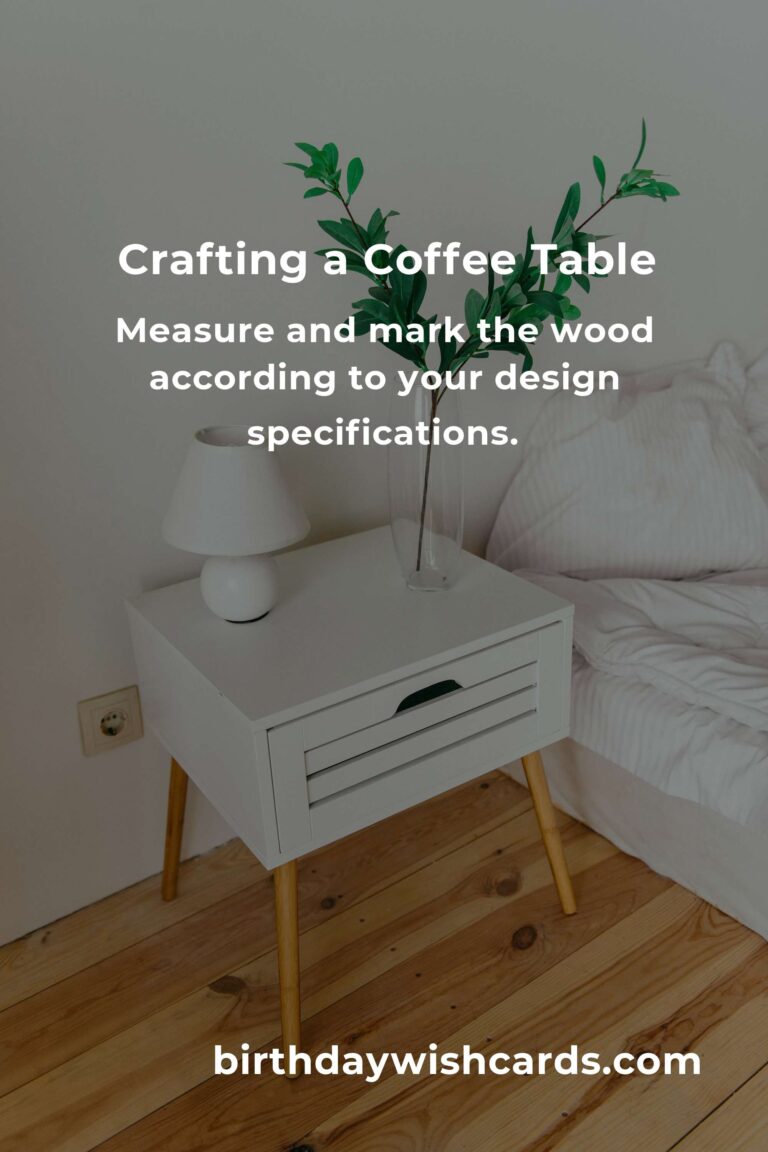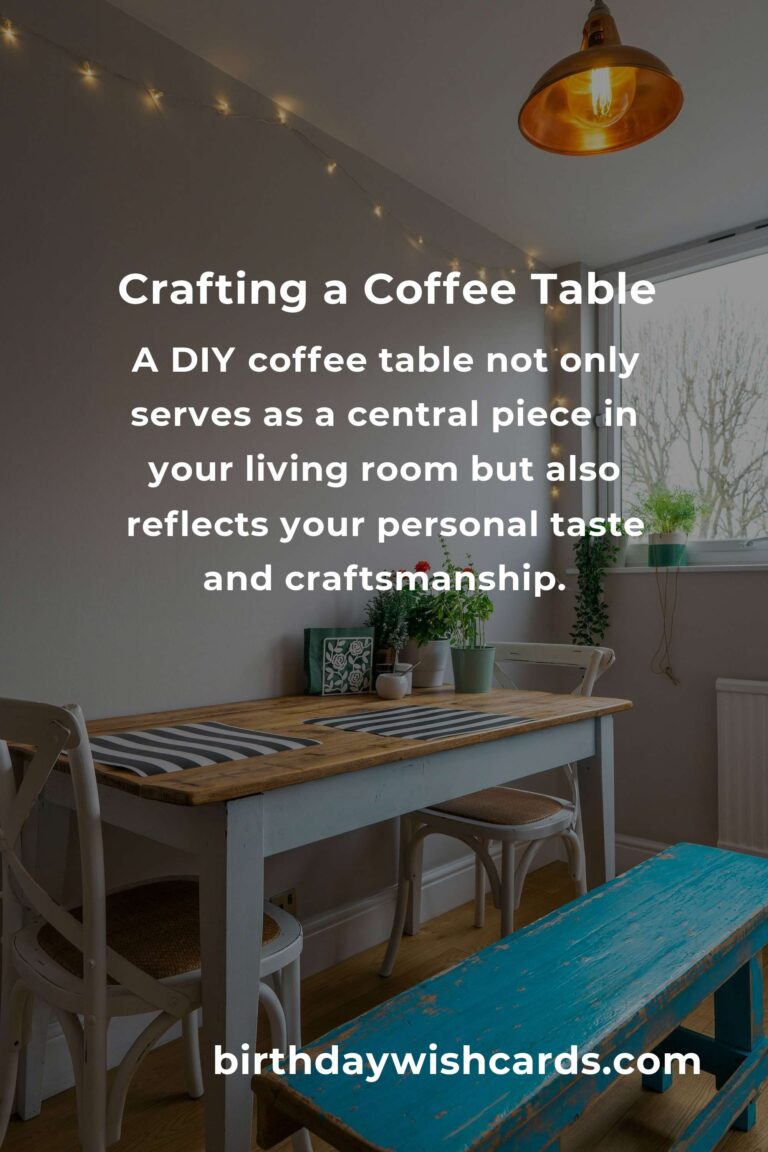
If you’re looking for a fulfilling weekend project that combines creativity, functionality, and style, crafting your own coffee table might be the perfect endeavor. A DIY coffee table not only serves as a central piece in your living room but also reflects your personal taste and craftsmanship. In this guide, we’ll walk you through the process of building a coffee table that complements your home decor and provides a sense of accomplishment.
Why Choose a DIY Coffee Table?
Creating your own coffee table has several advantages over purchasing one from a store. Firstly, it allows you to customize the size, shape, and design to fit your specific needs and space. Additionally, a DIY project can be more cost-effective, utilizing materials you might already own or can source at a lower price. Finally, there’s the personal satisfaction that comes from building something with your own hands, adding a unique touch to your home.
Materials and Tools You’ll Need
Before you start, gather all the necessary materials and tools. Here’s a basic list to get you started:
- Wood (such as pine, oak, or reclaimed wood)
- Wood screws
- Wood glue
- Sandpaper
- Wood stain or paint
- Varnish (optional)
- Saw (hand saw or power saw)
- Screwdriver or drill
- Tape measure
- Clamps
- Paintbrushes or rollers
Make sure you have a clear workspace and all safety equipment, such as goggles and gloves, to ensure a safe and efficient building process.
Step-by-Step Instructions
Step 1: Design Your Coffee Table
Start by sketching a design for your coffee table. Consider the dimensions that will fit your space, the height that complements your seating, and the overall style you wish to achieve. Whether you prefer a rustic, modern, or eclectic look, your design will guide your material choices and construction approach.
Step 2: Cut the Wood
Measure and mark the wood according to your design specifications. Use a saw to cut the pieces for the tabletop, legs, and any additional elements like shelves or crossbars. Ensure all pieces are cut accurately to maintain balance and aesthetics.
Step 3: Assemble the Tabletop
Lay out the tabletop pieces and join them using wood glue and screws. Clamps are helpful to keep the pieces aligned as the glue dries. Sand the surface to create a smooth finish, removing any rough edges or splinters.
Step 4: Attach the Legs
Once the tabletop is ready, position and attach the legs. Depending on your design, you may need to use brackets or additional supports for stability. Ensure all legs are even to prevent wobbling.
Step 5: Finish the Wood
Sand the entire table to prepare it for staining or painting. Apply your chosen finish using a brush or roller, following the wood grain for an even coat. Let the stain or paint dry completely, then apply a varnish for added protection if desired.
Final Touches
After the finish has dried, inspect your coffee table for any touch-ups needed. Add felt pads to the bottom of the legs to protect your floors. Arrange your new coffee table in your living room, and enjoy the fruits of your labor.
By following these steps, you’ll have a beautiful, custom coffee table that enhances your home décor and serves as a testament to your DIY skills.
A DIY coffee table not only serves as a central piece in your living room but also reflects your personal taste and craftsmanship.
Creating your own coffee table has several advantages over purchasing one from a store.
Start by sketching a design for your coffee table.
Measure and mark the wood according to your design specifications.
Apply your chosen finish using a brush or roller, following the wood grain for an even coat.
#DIY #CoffeeTable #HomeDecor #WeekendProject













